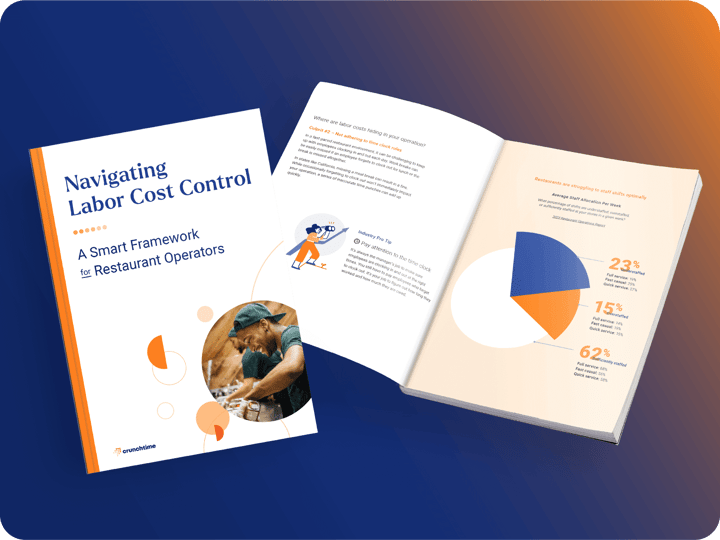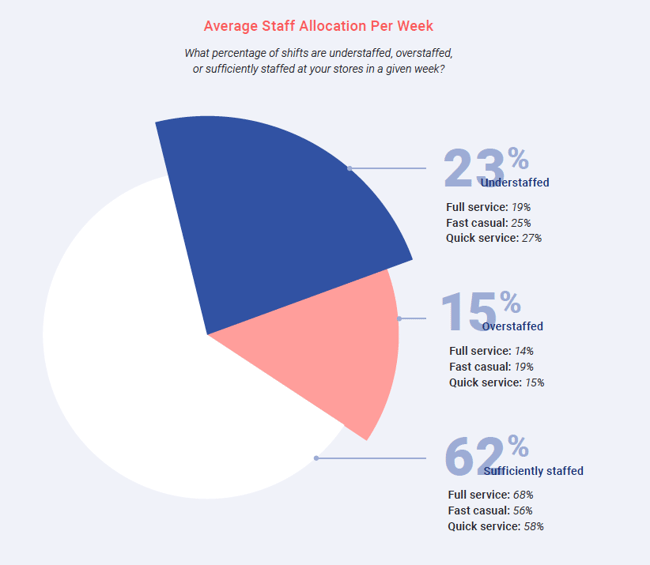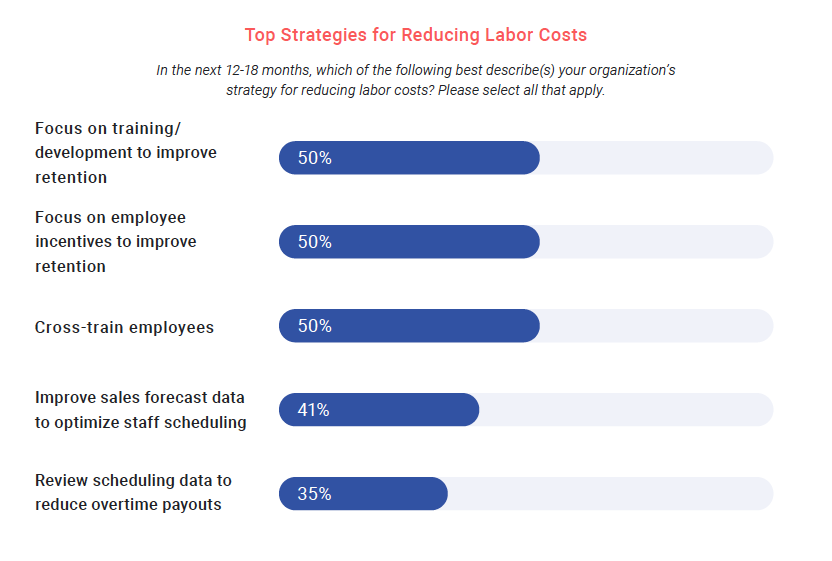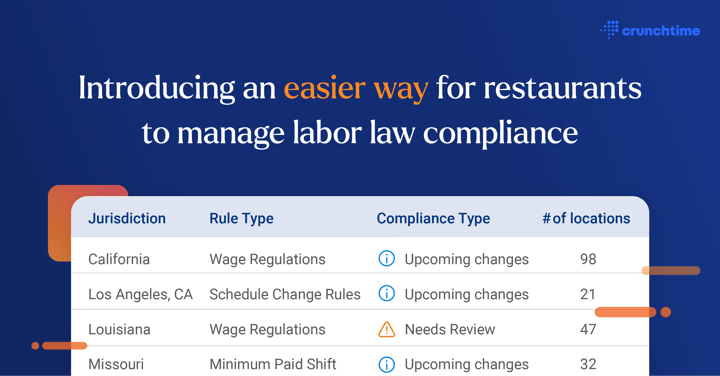
- Home
- Crunchtime Blog
- [2023 Research] Staffing Challenges are Broader than just Finding Labor

[2023 Research] Staffing Challenges are Broader than just Finding Labor
Staffing stores sufficiently requires looking into the past, present, and future and making decisions that affect day-to-day operations. It’s about finding the right balance between how labor hours are used and how restaurant teams are backed for success each and every shift.
In the recently released 2023 Restaurant Operations Report, respondents shared that stores are insufficiently staffed–both understaffed and overstaffed—for 38% of any given week. This signifies that staffing challenges are broader than just finding labor, even with consistently high turnover throughout the industry.
Overstaffed shifts underscore the complexity of creating and managing schedules. Overstaffing shifts is costly—paying for extra employees who either shouldn’t have been scheduled or could have been cut from the shift early.
On the other hand, a shift being understaffed is costly in a different way—paying overtime to keep employees on shifts longer, stressed-out employees feeling under-supported, increased risk from not having time to complete SOPs or food safety procedures, and the cost of a potentially poorer customer (and employee) experience.

It's well understood that labor costs are a concern for most operators, and there is little margin for error when properly staffing stores to keep costs down while also ensuring compliance with applicable labor laws in every store location. Restaurant Business Online reported in August 2023 that three multi-unit chains were ordered to pay $5 million in restitution and penalties for violating New York City’s scheduling restriction laws.
Operators acknowledged that strategies for reducing labor costs in the next 12-18 months center on employee training and retention, and improving scheduling processes, to address both under- and overstaffing. To optimize staff scheduling and reduce overtime payouts, operators want to improve sales forecasts and review scheduling data, both of which help select the right employees, with the right skill levels, to sufficiently staff a given shift, while saving time and reducing errors.

To continue to grow and open new stores, your stores need to get staffed quickly, and effectively. To do this better, and faster, evaluate how much time and effort is spent making and updating the schedule each week and consider how automation can alleviate this. Additionally, cross-training also makes creating schedules more effective since you can easily pivot mid-shift in case of a last-minute vacancy. Employees will also appreciate cross-training because it gives them experience in different areas, makes them more impactful across the business, and prepares them for a promotion. Plus, it helps build empathy within your team.
Download your free copy of the 2023 Restaurant Operations Report to dig into the full survey results. A deeper dive into the findings will also be shared in a live webinar with EnsembleIQ on Wednesday, October 25th at 11 AM ET. Register now to secure your spot, and join us live to ask questions, gain additional insight, and explore additional findings during this interactive session.
By downloading the report and attending the webinar, you'll have access to a wealth of information that can help better position your operation for success in 2024 and beyond.
Share this post
Related

![[New Research] Why Solving the Labor Puzzle is Critical for Restaurant Growth](https://www.crunchtime.com/hs-fs/hubfs/2025%20Research%20Report/2025-crunchtime-research-report-feat_@2x.jpg?length=720&name=2025-crunchtime-research-report-feat_@2x.jpg)
[New Research] Why Solving the Labor Puzzle is Critical for Restaurant Growth

.png?width=2463&height=1501&name=2023-Restaurant-Ops-Report-Thumb-LP-@2x%20(1).png)
